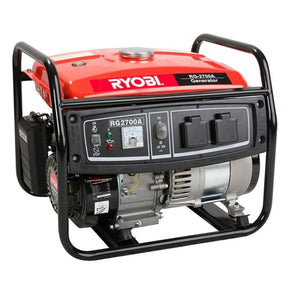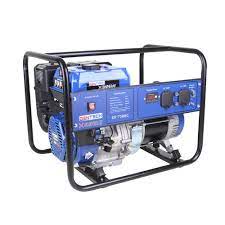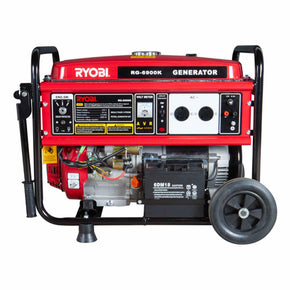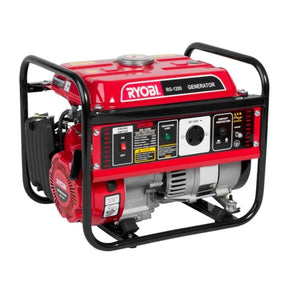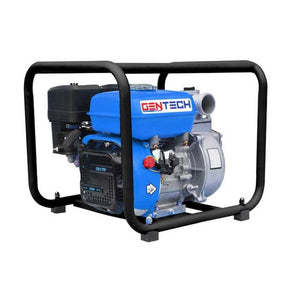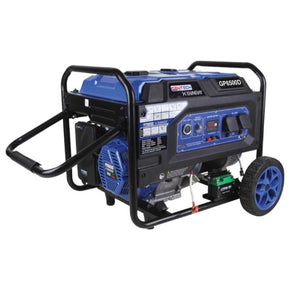- No products in the cart.
Browse Categories
-
Home Appliances
-
Small Appliances
- Audio Visuals
-
Bedlinen & Bathroom
- Decor
-
Dress Fabrics, Haberdashery & Sewing
-
Electronics & Cellphones
- Tech & Gaming
-
Kitchenware & Cleaning
-
Curtaining, Upholstery & Blinds
-
Furniture
- Catering Equipment
-
Fashion
-
Lighting & Hardware
- Solar Solutions
- Luggage & Bags
-
Camping & Outdoor
-
Baby & Toys
- Rugs & Flooring
- Stationery
- Clearance Sales Clearance Sales
- Sort by
- FILTER BY PRICE
-
-
Below $100.00
-
$100.00-199.00
-
$200.00-299.00
-
$300.00-399.00
-
$400.00-499.00
-
Above $500.00
-
- FILTER BY COLOR
-
-
- FILTER BY SIZE
-
-
S
-
M
-
L
-
XL
-
2XL
-
3XL
-
- FILTER BY BRAND
-
-
Adidas
-
Camel
-
Motorola
-
Rolex
-
Samsung Galaxy
-
Seiko
-
Sony
-
Best-Priced Range Generators for Sale
We offer a wide range of generators for sale at competitive prices in South Africa.
What Are Generators
It is important to know that a generator does not really "make" electricity. An electric generator is a piece of equipment that takes mechanical or magnetic energy from somewhere else and turns it into electric energy (electricity).
The current that the generator makes can be either direct current (DC) or alternating current (AC) (DC).
We also offer a range of powertools and hardware accessories for sale.
How Do Generators Work
A generator uses the mechanical energy supplied to it to force the movement of electric charges present in the wire of its windings through an external electric circuit. This flow of electric charges constitutes the output electric current supplied by the generator.
The modern generator is based on the idea of electromagnetic induction, which Michael Faraday came up with in 1831–1832. Faraday found that the flow of electric charges could be caused by moving a wire with electric charges through a magnetic field. This movement creates a difference in voltage between the two ends of the wire or electrical conductor. This difference in voltage makes the electric charges flow, which is how electric current is created.
In general, an electric generator consists of an engine, alternator, fuel system, voltage regulator, cooling and exhaust systems, lubrication system, battery charger, control panel, and main assembly or frame.
Different Types of Generators
Different types of generators, such as portable generators, inverter generators, standby generators, industrial generators, and induction generators, are used for different things.
Portable generators are very helpful whenever you need to make your own electricity. People also talk a lot about inverters. What is the difference between a generator and an inverter?
As was said above, a generator makes electricity. It is a mechanical device that turns the energy from burning fuel like diesel into electricity.
A power inverter set does store power in the form of direct current in the batteries (DC). It first changes the alternating current (AC) from the mains into the direct current (DC) and stores it. When you turn on your appliances, it changes the DC back into AC.
Generators get their power from diesel or petrol. They need to be taken care of with regular oil changes, lubricant changes, distilled water top-offs, and more. They also make a lot more noise. Inverters require very little maintenance. Make sure about water levels and that the battery terminals are clean.
Generators make a lot of noise, but they can also power up large appliances like refrigerators and air conditioners inside your home, and their backup power will last as long as you keep giving them fuel.
How to Choose Generators
When looking for a Generator you should consider the following:
The first thing you need to do is decide what you need to power. Make a list of all the electrical items and appliances you will need to run.
Do not forget that the things you use to cook and heat your home use a LOT more energy than anything else in your home. If the power is out for a long time and you need to use those appliances, you could either only use those appliances or get a generator that can power all of your equipment at once.
- Once you know what you need to power, you need to find out how much power each appliance needs. Write down the number of watts used by each appliance and add them all up to get the total. You can also measure how much power you use right on your Power Distribution Board if you are a more experienced user. But this should only be done by a trained electrician.
- Once you know how much power your home or business needs, you have all the information you need to choose a backup power generator. Fossil fuel backup generators have been and probably will continue to be the most cost-effective and easy-to-use backup power sources for a while. Now that you know what size to go with, the next step is to fit that into a machine.
- The best thing to do is to make sure that your backup power source can give you 15 percent more power than you usually need. The reason for overshooting is that some appliances, like fridges, use more power when they are turned on for a short time.
- Once you know how much power or size you need, you can go to check out power generators and choose one.
Best Brands of Generators for Sale at MHC World
Some of the best-known Generators brands are:
- Ryobi
- Gentech
- Gizzu
- Winx Go Fast
- Xiaomi Mi
- Amplify Spark

